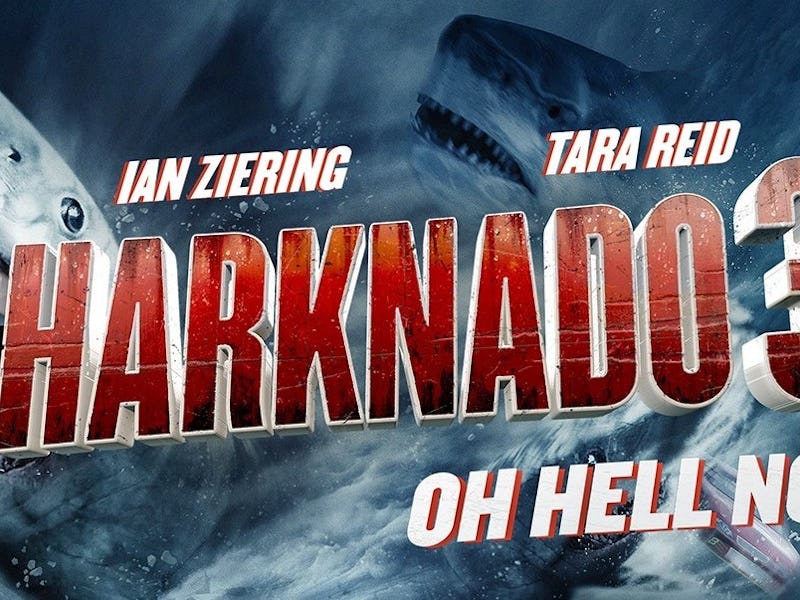'Sharknado' Is Your Cultural Savior
Apparently watching a Tara Reid movie is akin to watching Shakespeare.

Sharknado is a cultural savior, at least according to the film’s screenwriter. The glossy B-movie monster mash-up debuted on SyFy in 2013 and immediately generated a TON of attention on social media because it’s terrible. It’s the epitome of low culture. Sharknado reaped the benefits of live social chatter with a crapbag movie to line the pockets of its financiers for life. Two years later we’re on the cusp of yet another: Sharknado 3 Oh Hell No! Oh yeah, they made a second one last year with the meta-tastic subtitle The Second One.
SyFy has undoubtedly struck gold with the property. It flaunts its campish nature, has zero aspirations, and succeeds especially well when it does badly. For screenwriter Thunder Levin, it’s achieved way more. In a recent interview, he compares the act of watching Tara Reid try to mimic real human behavior to… the first time Neanderthals sat around a campfire to shoot the shit. He then drops this bomb:
“So really that night that Sharknado exploded on Twitter, it was the very first communal experience of the Internet age. And so, in a way, Sharknado is saving the entire human race.”
While I wouldn’t go so far as to say that Sharknado is capable of uniting the entire human race - after all, rallying people together to spew vitriol isn’t super progressive - its reputation cannot be questioned. The CGI catastrophe has captured the attention of a demographic who base drinking games around its awfulness, and it somehow inspired a poem written from the sharks’ POV.
Cultural documents serve to represent where we, as a society, are at any point in history. Sharknado’s relevance requires the cutting Tweets to offer it context, to give it meaning. If it were buried in a time capsule and shoveled up centuries from now, I doubt our descendants would gather to ironically praise Ian Ziering chainsawing a flying shark.